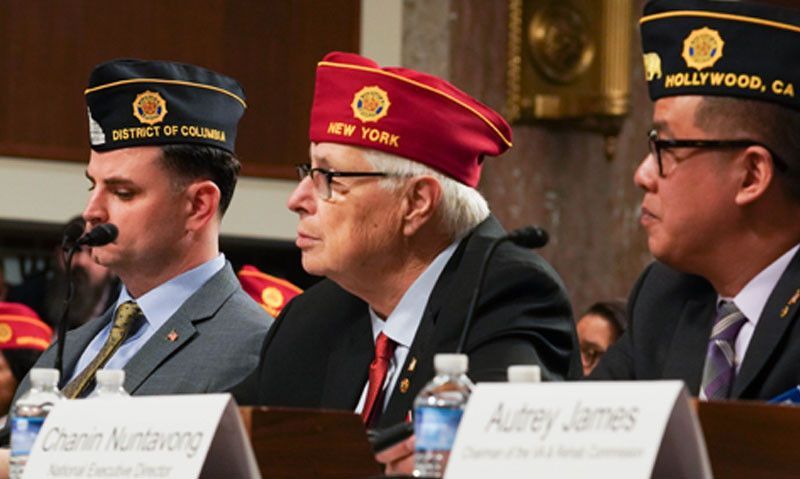
Accomplishments aren’t much without funding
House Committee on Veterans’ Affairs Ranking Member Mark Takano, D-Calif., issued a warning last February to veterans gathered at the American Legion Washington Conference: “I am worried about the fate of these accomplishments.”
He was referring to more than 80 bills passed in the 117th Congress to help veterans and their families. Among them was the Sgt. 1st Class Heath Robinson Honoring Our Promise to Address Comprehensive Toxics Act of 2022 – better known as the PACT Act. The historic Legion-supported legislation, signed into law just over a year ago, opened the door to VA health care and disability benefits for some 3.5 million veterans exposed to toxic burn pits, atomic radiation, Agent Orange and other contaminants during their time in service. So far, more than 750,000 veterans have filed VA claims under the PACT Act, and the number is climbing every day.
At the time Takano spoke to Legionnaires, a new congressional session was under way, and an old familiar tune was detected in Washington. Cut the VA budget to cover fiscal deficiencies elsewhere in the federal government. A Congressional Budget Office proposal explored reducing VA funding by over 20% – just in time for the first wave of PACT Act veterans.
The American Legion’s response to that proposal: Look elsewhere.
Congress did, but it was by a narrow 219-211 vote that the House of Representatives approved the 2024 Military Construction, Veterans Affairs and Related Agencies Appropriations Act on July 27 that would fully fund VA health care, benefits, programs and services for the next fiscal year. The Senate will soon review and debate provisions of the spending bill so that VA can start the new year with a real budget in hand.
If, however, the measure gets hung up and the two houses of Congress cannot agree, the bigger threat is another government shutdown – as we saw in January 2019 when the entire U.S. Coast Guard went more than 30 days without pay. The American Legion helped junior enlisted USCG personnel with children at home, by issuing over $1.1 million in Temporary Financial Assistance grants to cover necessary costs as they waited for pay while at the same time fulfilling their duties.
This is why The American Legion has fought since then for passage of legislation that would protect Coast Guard members from pay delays in the event of a government shutdown. The other branches of service are so protected because they are under the Department of Defense, while the Coast Guard is under the Department of Homeland Security.
An on-time, adequate budget for VA solves the problem, for now.
Throughout The American Legion’s history, our members have fought off a federal habit of retreating from veterans during times of peace. Veterans, we have often said, in times of conflict and peace, are a long-term cost of war. A new generation of those men and women is now entering the VA system, and rightfully so, facing new and different circumstances.
The American Legion’s mission, as it has been for over a century, is to make sure their needs, and those of all generations, are met with the funding necessary to fulfill them. Otherwise, hard-won legislative accomplishments won’t mean much at all.
National Commander
Vincent J. “Jim” Troiola
